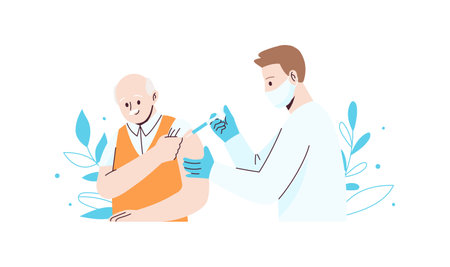Understanding Developmental Delays in Indian Children
Developmental delays refer to when a child does not reach their expected milestones in physical, cognitive, social, or communication skills within the typical age range. In India, these delays can manifest as late walking, delayed speech, difficulty in social interaction, or challenges with learning and attention. Recognising these signs early is crucial for effective intervention. Given Indias diverse population and cultural context, developmental delays may sometimes be overlooked due to societal stigma, lack of awareness, or attributing differences to individual growth patterns. In many Indian families, grandparents and extended relatives play an active role in child-rearing. Their observations and insights are invaluable, as they spend significant time with children and can notice subtle changes in behaviour or skill acquisition. Caregivers and parents must remain vigilant to early warning signs such as not responding to names, lack of eye contact, difficulty following instructions, or struggling with basic motor tasks. Early identification allows families to seek professional guidance sooner rather than later. This collaborative vigilance within the joint family system or nuclear setups is essential in ensuring that every child gets the best opportunity for healthy development.
Cultural Perceptions and Stigma around Developmental Delays
In India, cultural beliefs and traditional attitudes play a significant role in how families perceive and respond to developmental delays in children. Many parents may initially attribute delays to factors such as “late blooming,” karma, or even the influence of supernatural forces. This can lead to hesitation in seeking early intervention services, as families might hope that the child will “catch up” naturally or believe that intervention goes against their cultural or religious values.
Common Local Beliefs and Attitudes
| Belief/Attitude | Description | Impact on Early Help-Seeking |
|---|---|---|
| “Late Bloomers” Myth | Children develop at their own pace; delays are temporary. | Delays seeking professional advice or therapy. |
| Karma/Fate | Child’s condition is destined or punishment for past deeds. | Acceptance without intervention; reluctance to seek help. |
| Stigma of Disability | Fear of social exclusion, marriage difficulties, or shame. | Hiding the child’s difficulties; avoiding diagnosis. |
| Reliance on Traditional Healers | Preference for local healers over medical professionals. | Missed opportunities for evidence-based intervention. |
Social Challenges Faced by Indian Families
The stigma associated with developmental delays often leads to isolation for both the child and family. Extended family members or neighbours may offer unsolicited advice or criticize parents for the childs perceived shortcomings, adding emotional pressure. In many communities, there is a strong emphasis on academic success and early achievements, which can further increase parental anxiety when a child does not meet typical milestones. These social challenges create barriers to seeking timely intervention and support.
The Importance of Awareness and Community Support
To overcome these cultural and social obstacles, it is essential to increase awareness about developmental delays and the benefits of early intervention within Indian communities. Educational campaigns, involvement of local leaders, and collaboration with schools can help shift perspectives from blame and stigma towards understanding and proactive care. As more families come forward to share positive outcomes from early intervention, societal attitudes will gradually evolve, making it easier for others to access much-needed support.

3. Why Early Intervention Makes a Difference
Early intervention is widely recognised by experts and Indian paediatricians as one of the most effective ways to support children with developmental delays. Scientifically, the first few years of life are crucial for brain development. During this period, a child’s brain has high plasticity, meaning it can adapt and learn new skills rapidly. In India, where awareness about developmental milestones is still growing, timely identification and support can dramatically improve a childs ability to reach their potential.
From a practical perspective, acting early allows families to access therapies, educational support, and community resources tailored to their child’s needs. This could include speech therapy in local languages, physiotherapy, or special education services that are now increasingly available in both urban centres like Mumbai and Delhi and Tier 2 cities such as Coimbatore or Lucknow. When intervention starts before a child enters formal schooling, it increases their readiness for school and enhances social participation, reducing stigma often faced by families in Indian society.
Furthermore, early intervention reduces long-term costs by preventing secondary challenges such as behavioural issues or academic failure. For Indian parents who may be juggling responsibilities within joint families or managing limited resources, early action means fewer hospital visits and better integration into mainstream education. It empowers caregivers with information and strategies—whether it’s practicing daily routines at home or seeking help from Anganwadi workers—to help their children thrive in the unique Indian context.
4. Key Signs for Early Detection
Early identification of developmental delays is vital for timely intervention, especially in the diverse context of India. Indian parents can benefit greatly by being aware of culturally-relevant signs and checkpoints that may indicate a child needs professional support. Recognising these signs early ensures better outcomes, bridging developmental gaps and promoting holistic growth.
Common Areas to Observe
| Developmental Domain | Key Signs | Cultural Context (Indian Examples) |
|---|---|---|
| Communication | Delayed speech, lack of babbling by 12 months, not responding to name | Not using common home languages (Hindi, Tamil, Bengali etc.), not joining simple family prayers or greetings like “Namaste” |
| Social Interaction | No eye contact, limited smiling, not playing with others | Not interacting during joint family gatherings, avoiding festivals or rituals, not participating in traditional games like kabaddi or gilli-danda |
| Motor Skills | Late walking, trouble holding objects, unsteady movements | Unable to eat with hands (important in Indian culture), difficulty folding hands for “pranam”, struggling to wear simple traditional attire (kurta, saree draping assistance) |
| Cognitive Skills | Trouble following instructions, difficulty recognising family members | Not able to recognise elders titles (“Dadi”, “Chacha”), unable to follow instructions during daily puja or meal times |
| Self-Help Skills | Trouble feeding self, delayed toilet training | Difficulties adapting to Indian toilet styles, unable to wash hands before meals as per custom |
When Should Parents Seek Help?
- If your child is missing multiple milestones as per the above table.
- If teachers or caregivers mention concerns about your childs interaction or learning pace at anganwadi or pre-school.
- If there is a strong family history of developmental delays or genetic conditions.
- If you observe persistent challenges despite home efforts and guidance from elders.
The Role of Community Observation
In many Indian communities, extended families and neighbours play an active role in child upbringing. While this collective observation can be helpful in picking up on early delays, it is crucial for parents not to dismiss professional advice due to social stigma or myths. Open discussions with paediatricians and early childhood specialists can provide clarity and direction.
Tip:
If you notice any signs listed above—or if your gut feeling says something isn’t right—trust your instincts and consult a specialist. Early action can make a world of difference for your childs future.
5. Accessible Early Intervention Services in India
When it comes to early intervention for child developmental delays, accessibility is a major concern for many Indian families. Fortunately, India offers several resources and schemes that make early intervention services more reachable, even in rural and semi-urban areas.
Anganwadi Centres: The First Point of Contact
Anganwadi centres, established under the Integrated Child Development Services (ICDS) scheme, are present in almost every village across the country. These centres provide vital health, nutrition, and preschool education services to children under 6 years of age. Anganwadi workers often identify children who show signs of developmental delay and guide parents towards available support systems or medical referrals.
Government Schemes Supporting Early Intervention
The Government of India has launched multiple initiatives to address childhood disabilities and developmental concerns. Schemes such as Rashtriya Bal Swasthya Karyakram (RBSK) focus on screening children for developmental delays and disabilities at an early stage. This program ensures free diagnostic and follow-up services at public health facilities. Additionally, the National Trust Act offers support for children with autism, cerebral palsy, intellectual disabilities, and multiple disabilities through grants and rehabilitation programs.
NGOs and Local Resources Making a Difference
Numerous NGOs across India work hand-in-hand with government agencies to fill service gaps. Organisations like Action for Autism, Vidya Sagar, Ummeed Child Development Centre, and Spastics Society of India offer therapy sessions, parent training workshops, and community outreach programmes. Many cities also have local resource groups and parent support networks dedicated to sharing knowledge about therapies such as speech therapy, occupational therapy, and physiotherapy tailored to Indian cultural settings.
How Parents Can Access Help
For parents seeking early intervention support, the first step is often visiting the nearest Anganwadi centre or primary health care facility. From there, they can get connected to district-level hospitals or specialised NGOs. Many state governments also run toll-free helplines for queries regarding child development. By utilising these resources—be it through government schemes or NGOs—families can ensure their children receive timely and culturally sensitive interventions that set them on the path to better growth and inclusion.
6. Role of Family, Schools, and Community
United Support: Building a Strong Foundation
In India, the family is often at the heart of a child’s upbringing. When it comes to early intervention for developmental delays, this central role becomes even more crucial. Parents, siblings, and extended family members can provide consistent support, encouragement, and love that motivates children to participate in therapies and daily routines. Moreover, Indian families are well known for their close-knit structure, which helps reinforce the importance of community-based care and shared responsibility.
The School’s Impact: Early Identification and Continuous Guidance
Schools serve as a vital link in recognising developmental delays early. Teachers and educators spend significant time with children and can observe behavioural or learning differences that may go unnoticed at home. In India’s diverse educational landscape—from anganwadis to private schools—training teachers to spot red flags and communicate effectively with parents is key. Collaboration between schools and families ensures that interventions begun at school can be continued seamlessly at home.
Community Leaders: Creating Awareness & Access
Community leaders—such as sarpanchs, local doctors, and social workers—play an important role in spreading awareness about early intervention services. Their influence helps reduce stigma associated with developmental delays, especially in rural areas where myths and misinformation may hinder timely help. By facilitating access to health camps, workshops, and government schemes like Rashtriya Bal Swasthya Karyakram (RBSK), community leaders ensure that children from all backgrounds have the opportunity to receive necessary support.
Collaboration is Key: A Holistic Approach
For early intervention to be truly effective in India, there must be a strong partnership between families, schools, and the wider community. Open communication channels help everyone involved understand the child’s needs and progress. Regular meetings between parents, teachers, therapists, and community health workers allow for sharing best practices and coordinating efforts. Together, these pillars create an environment where every child has the chance to thrive—no matter their starting point.
7. Steps to Take: A Guide for Indian Parents
Recognise the Signs and Trust Your Instincts
As a parent, you know your child best. If you notice delays in speech, movement, social interactions, or learning milestones, do not ignore your concerns. Early identification is the first step. In India, it is common to hear “Let’s wait and watch” or “He will catch up,” but timely action makes all the difference.
Contact the Right Professionals
Reach out to your paediatrician or local healthcare provider as soon as you sense something is amiss. Ask for a referral to a developmental paediatrician, child psychologist, or occupational therapist—these specialists are available in most major Indian cities and some district hospitals. You can also connect with government-run Early Intervention Centres under schemes like Rashtriya Bal Swasthya Karyakram (RBSK) or contact NGOs such as Ummeed Child Development Centre or Action for Autism for guidance.
Essential Questions to Ask
- What type of assessment does my child need?
- How soon should intervention begin?
- What therapies and services are available locally?
- How can I support my child’s development at home?
- Are there financial assistance options or government schemes that we qualify for?
Advocate for Your Child
In Indian society, stigma around developmental delays can be challenging. Be proactive—educate family members, teachers, and caregivers about your child’s needs. Join parent support groups in your city or online communities like Parent Circle or SEN Parents India. Document every conversation with professionals and request written reports.
Create an Individualised Plan
Work with therapists to set achievable goals tailored to your child’s strengths and challenges. Monitor progress regularly and don’t hesitate to seek a second opinion if needed.
Nurture at Home and in Community
Practice recommended activities daily—use play-based exercises, Indian rhymes, and stories in your mother tongue to enhance learning. Involve grandparents and siblings; their support can make interventions more effective and culturally relevant.
Your Role is Powerful
Remember, early intervention is a journey that requires patience and persistence. With timely action, the right support network, and a proactive approach, parents in India can give their children the best chance to thrive—no matter what challenges they face.


